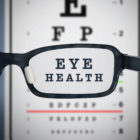
Usually when I share an article, it’s from a well-known medical journal. But this information was reported on the front page of the Wall Street Journal (WSJ January 15, 2020).
And it’s alarming!
Heart disease and strokes are killing an increasing number of Americans between the ages of 45 and 64, in the prime years of their life.
“It’s everywhere!” points out the WSJ. Major, midsize, and small metro areas, rural areas, and everywhere else. Even healthy areas of the country like Colorado reported some of the largest increases in death from heart disease. The 10 largest rate increases 2010 to 2016 were in:
| Lexington, Ky | 27.9% Increase | Beaumont, Tx | 24.1% |
| Atlantic City, NJ | 25.7 | Fort Wayne, Ind | 23.9 |
| Corpus Christi, Tx | 25.7 | Greeley, Colo | 23.5 |
| Lincoln, Ne | 25.1 | Colo Springs | 23.3 |
| Fort Collins, Colo | 24.4 | Kennewick, Wash | 22.5 |
Here is a shocker…In Colorado, one of our healthiest and most athletic states, a 2018 report from their public health department found that the people moving there were less obese and overweight than the people who already lived there. They provided example after example of people in their 40s coming into emergency rooms with a heart attack. This is even more common in women who go into early menopause and who are not on estrogen. More than a quarter of elementary-school children screened in the 2018-19 school year were overweight or obese, and just under 20% had borderline or high cholesterol.
What’s even more amazing? The prevalence of cardiovascular risk factors is higher for the 35 to 64-year-olds than among the 65+ year-olds.
| % Age 35-64 | % 65+ | |
| With HBP Under Control | 52.9 | 45.9 |
| On Cholesterol Drugs | 48.1 | 63.5 |
| Smoke Tobacco | 24.6 | 10.4 |
| Physically Inactive | 28.4 | 41.2 |
| Avg Sodium Intake mg/day | 3,591 | 2,947 |
What can you do? Begin by realizing it can happen to you. Yes you. And then realize it’s time to change your future health. Here are the things that will help you the most:
- Eliminate tobacco
- Increase fiber, plant-based foods, exercise and sleep
- Decrease stress, fast foods, processed foods, sugar, and salt
- Control your weight and blood pressure
- Get annual checkups and screening
As Ben Franklin once said, “An ounce of prevention is worth a pound of cure.” My personal way of saying this is, “It’s better to stay well than to get well.”




